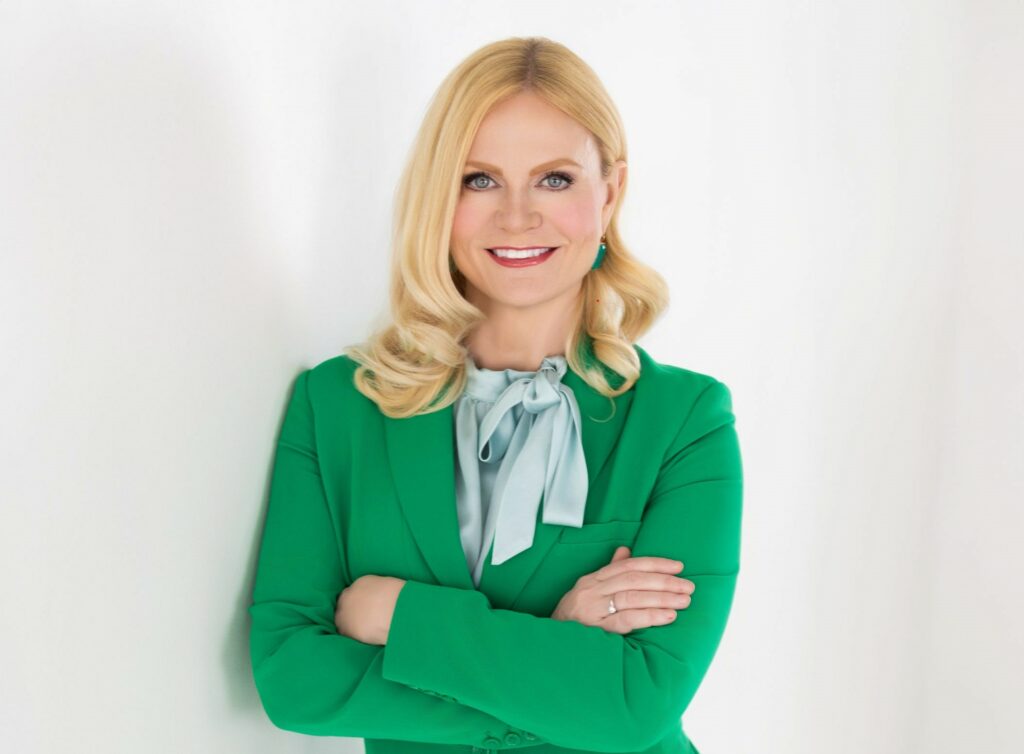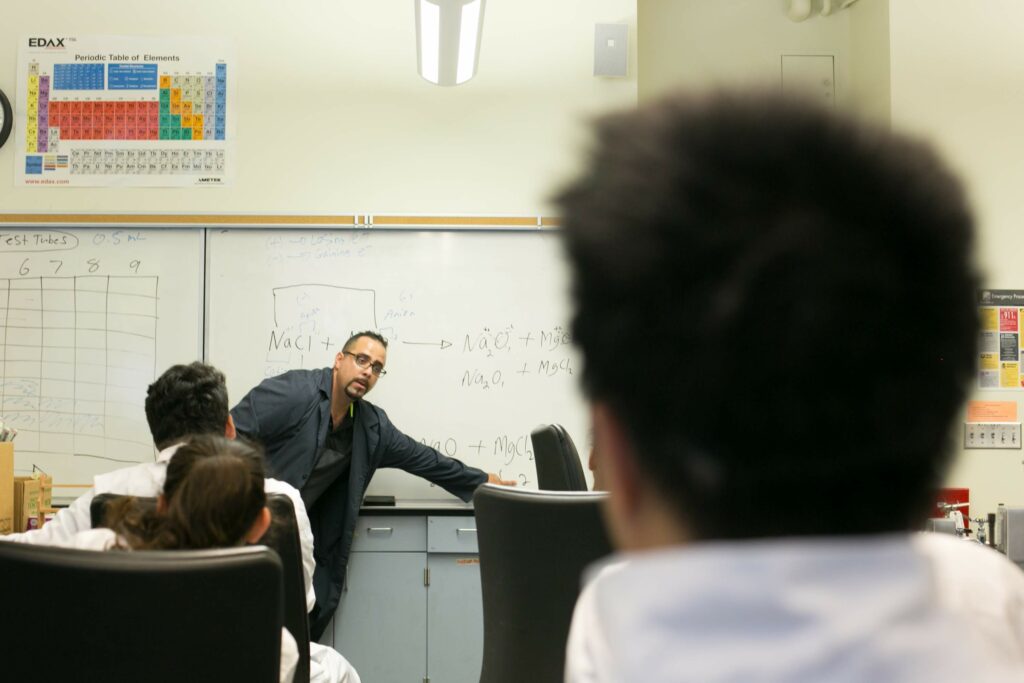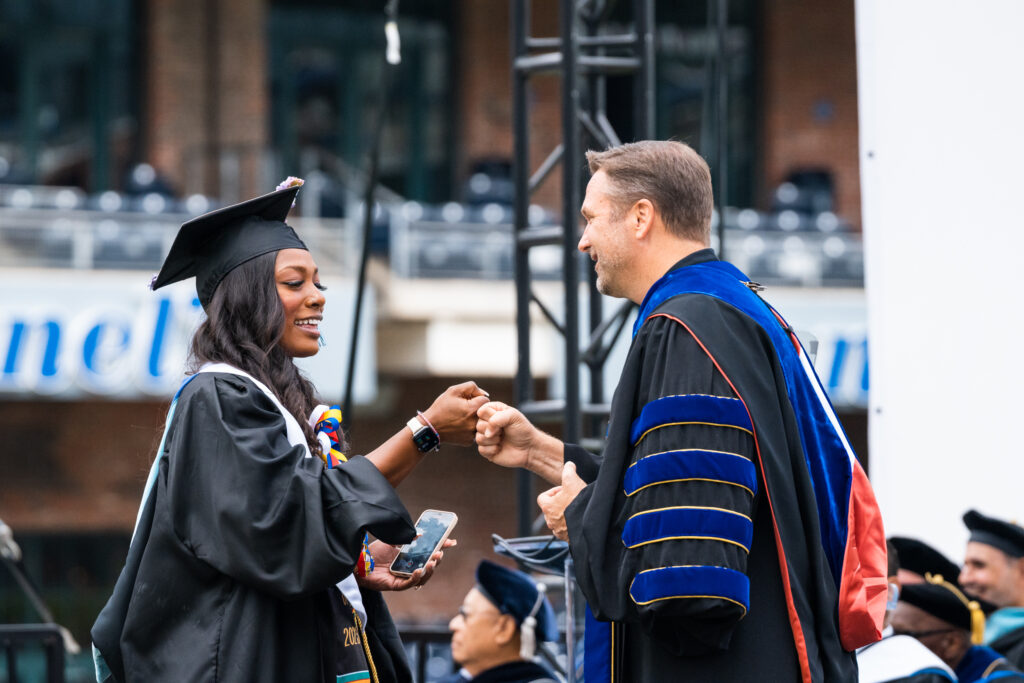
Credit: Alison Yin/EdSource
Early this year, the California Department of Health Care Access and Information introduced the new Certified Wellness Coach program, aimed at improving the state’s inadequate capacity to support growing behavioral and mental health needs in California’s youth.
The program is part of the historic five-year, $4.6 billion state-funded Children and Youth Behavioral Health Initiative, of which the Department received $278 million to recruit, train and certify a diverse slate of mental health support personnel, or certified wellness coaches, in schools and community-based organizations across the state.

According to Sharmil Shah, assistant deputy director of the California Department of Health Care Access and Information, certified wellness coaches work under a care team of licensed clinicians and professionals in pre-K, K-12 and post-secondary school settings. Most coaches have relevant associate or bachelor’s degrees in social work and human services and are trained in nonclinical behavioral health support.
Shah says the program strives to become a long-term response to a long-term crisis in California — that rates of anxiety and depression among the state’s children shot up by 70% between 2017 and 2022, and that following the COVID-19 pandemic, many adolescents experienced serious psychological distress and reported a 20% increase in suicides.
As part of a five-year initiative’s broader push to redefine student success, the program builds on research that behavioral interventions also improve academic performance and attendance in schools. In fact, anxiety, depression and mental health are the top health-related drivers of absenteeism since the onset of the pandemic, according to the Los Angeles Trust for Children’s Health. Simply put, students who feel better do better in school.
EdSource interviewed Shah about the new wellness coach program. Her remarks have been edited for length and clarity.
Describe the Certified Wellness Coach program. What can young people expect from the new wellness coaches?
Certified wellness coaches are meant to be an additional, trusted adult on a school campus — whether it’s an elementary school, middle school, high school or a college campus. This is a person that young people can turn to in times of need. Coaches would offer preventive and early intervention services and are intended to support a child or even a 25-year-old before a severe behavioral health need arises.
Some of the things that a parent or a child might see are classroom-level presentations, supporting school counselors with [mental health] screenings, individual and small group check-ins, wellness education and referrals to advanced behavioral health providers in times of crisis, among many other services.
What are the two types of wellness coaches, and how are their roles different?
There is a Certified Wellness Coach 1 and Certified Wellness Coach II. The Certified Wellness Coach 1 offers entry-level behavioral health supports, such as structured curriculum, to small groups or classrooms, which are focused on wellness promotion and education, mental health literacy — understanding the language of mental health — and life skills. They also support screenings for young people, connect them to behavioral health resources and professionals. If it becomes apparent that someone has a more significant need for behavioral health services, they’ll do a warm hand-off to a higher level of care.
The Certified Wellness Coach II provides a little more in-depth prevention and early intervention support to children and youth. They provide structured curriculum for groups or classrooms that’s focused on enhancing awareness of common behavioral health conditions like depression, anxiety. The Certified Wellness Coach II can help young people overcome maladaptive thinking patterns, distraction strategies and emotional regulations, and are able to do higher level interventions than a Certified Wellness Coach 1.
To support a mental health screening, a Certified Wellness Coach 1 can give the child some information about it, but they won’t administer the questions. The Certified Wellness Coach II can actually facilitate a screening process, be in the room and get everything set up, but they must still all be under the guidance of a school counselor who has qualifications to administer the screening and ask the questions, for example.
Why was it important to implement the program at all levels of schooling — from early education to community college?
It’s essential for children and youth to get help earlier on in the continuum of care, especially before a crisis arises. We believe that by supporting them at a younger age, we can provide them with the tools and skills to support their behavioral health and build resilience as they age. Wellness coaches can support youth through all the different changes, not only as related to age, but to life in general. We start at a very young age and then continue to an age where they can actually remember and hold onto the skills that they’ve learned.
How did the pandemic shape your vision for the program?
For students, we saw increased levels of anxiety, depression, social isolation, a disruption in their education, economic difficulties, and, of course, a lot of loss and grief. Children and adolescents lost family members who did not survive the pandemic. From research, we knew that there was already a youth mental health crisis in the state of California. The pandemic exacerbated it.
One system alone cannot address these challenges, but the school system is where all the kids are. There’s just not enough school personnel to address the need across the state. Through the development of this workforce, we hope that we can complement the incredible work that the educators are already doing by being a partner in their students’ health. Our wellness coaches can focus on social isolation, anxiety, feelings of sadness, and feeling connected and able to talk to somebody.
In a 2022 survey, about 55% of teachers said they would retire earlier than planned due to burnout from the pandemic. Could wellness coaches help relieve some of that ongoing burnout?
I was a PTA president, and I was in those environments in which I saw that there’s a child in the classroom that clearly looks like they need behavioral health services, and the teacher is spending maybe 90% of his or her time on that student, and the rest of the [students] are just kind of running around in circles. The current counselor-to-student ratio in California is about 1 to 464. It’s impossible, and it’s nearly double the recommended ratio. As the staff that spends the most time with students, the burden of supporting student behavioral health often falls on the teacher. That’s just not sustainable. That’s not helpful for the teachers, and they can’t do their job. By adding additional behavioral health professionals on campus, like wellness coaches, we can hopefully alleviate some of that burden and allow teachers to focus on the academic success of their students.
How will certified wellness coaches serve youth from multilingual or multicultural backgrounds? Will coaches reflect the demographics and experiences of their school’s student body?
Equity and effective access to care is a cornerstone of our programs. We have been recruiting diverse candidates to become wellness coaches and making sure that we adequately address cultural responsiveness and humility as part of their training. We have done very extensive marketing and outreach campaigns that use a variety of channels and messaging to get to as many populations as we can, including underserved and underrepresented communities.
We also selected our employer support grant awardees, mostly schools and some community-based organizations, based on geographic spread, to make sure that all 58 counties were represented and could hire coaches. And then we also provided special consideration to Title 1 [low income] schools, organizations whose staff speak multiple languages, and organizations that support Medi-Cal students. And then we had two scholarship cycles to support students who wanted to become wellness coaches. We [will support] their tuition and living expenses, especially for those who came from different backgrounds or didn’t have a lot of resources.
We are also partnering with California community colleges, which offer resources and support for underserved and underrepresented populations to enter the wellness coach system. What we found in our research is that 65% of their students were classified as economically disadvantaged. So we’re already addressing those groups.
And as part of our certification requirements, we’re focusing on specific degrees such as social work, human services and addiction studies, which already include cultural responsiveness and cultural humility as part of their key learning outcomes. What we’ve heard anecdotally from a lot of young people is that, “I don’t see myself in the people that are helping me or serving me,” and we want them to feel safe and comfortable with the person that they’re talking to.
Where are you in the rollout of the program?
In February 2024, we launched the certification program for wellness coaches. As of Sept. 17, we have certified 383 coaches, and that number is steadily growing. We’ve done so much outreach and engagement and social media blips and radio ads, because we need to be able to reach the young people where they are. As of August, the Department executed 64 21-month grant awards of $125 million to employer support grants for schools and community-based organizations to hire wellness coaches. That will fund the placement of more than 1,500 certified wellness coaches between this school year and next school year. And then, also, in August, we awarded 99 individuals with scholarships totaling about $2.8 million for those pursuing degrees with which they apply to become a certified wellness coach.
How can the program address broader post-pandemic issues such as chronic absenteeism and declining school enrollment?
We’re hoping that wellness coaches will strengthen young people by providing them with a safe place to share their fears and teaching them the skills necessary to cope with life’s challenges. We believe that equipping them with these skills will decrease absenteeism, help them focus on their schoolwork and also be able to have them integrate themselves into the school environment. Young people with behavioral health conditions are sometimes isolated, bullied, made fun of and may not even like school as a result of all of those things that are going on. If they have a safe place, a safe adult, a safe person that they can talk to about some of the feelings they have, they will be happy to come back to school, look at it as a place of learning and a place to make friends.
What kind of challenges do you foresee in keeping the program running and successful?
Sustainability. Everything runs on the mighty dollar. We are in the final years of the [Children and Youth Behavioral Health Initiative] right now, and we can use those funds to sustain the program for probably another year or two. We are actively partnering with the Department of Health Care Services, and other state departments, to make certified wellness coaches’ services billable through Medi-Cal [and commercial insurance], which will support sustainable financing in our schools [beyond the five-year initiative].
Extensive research has demonstrated that students who feel like they belong in schools perform better in the classroom and have better rates of attendance. This not only benefits the student, but it also potentially benefits the schools in retaining coaches, as school finances are based in-part on school attendance.
What kind of feedback have you received about the program?
I had a student who said, “I didn’t really feel like there were a lot of places to go to, even though they had help available. I didn’t trust people to confide in.” You never want people to feel like they have nowhere to go or that they’re alone. This was a student who would then become a wellness coach. Another student who became a wellness coach said that she didn’t feel there was enough support when kids needed help where she lived. She said, “If I’m struggling, I want to know there’s someone there for me if I genuinely need it.” She said she’s had really hard days, but being able to open up and talk about it makes the world seem a little more colorful. It makes her feel lighter on her feet.
We had some parents indicate that wellness coaches are a great way to give back to the community, because they’re giving back to our future, our children. It’s helping them be productive members of society and be the best version of themselves.
This story was updated for clarity.














